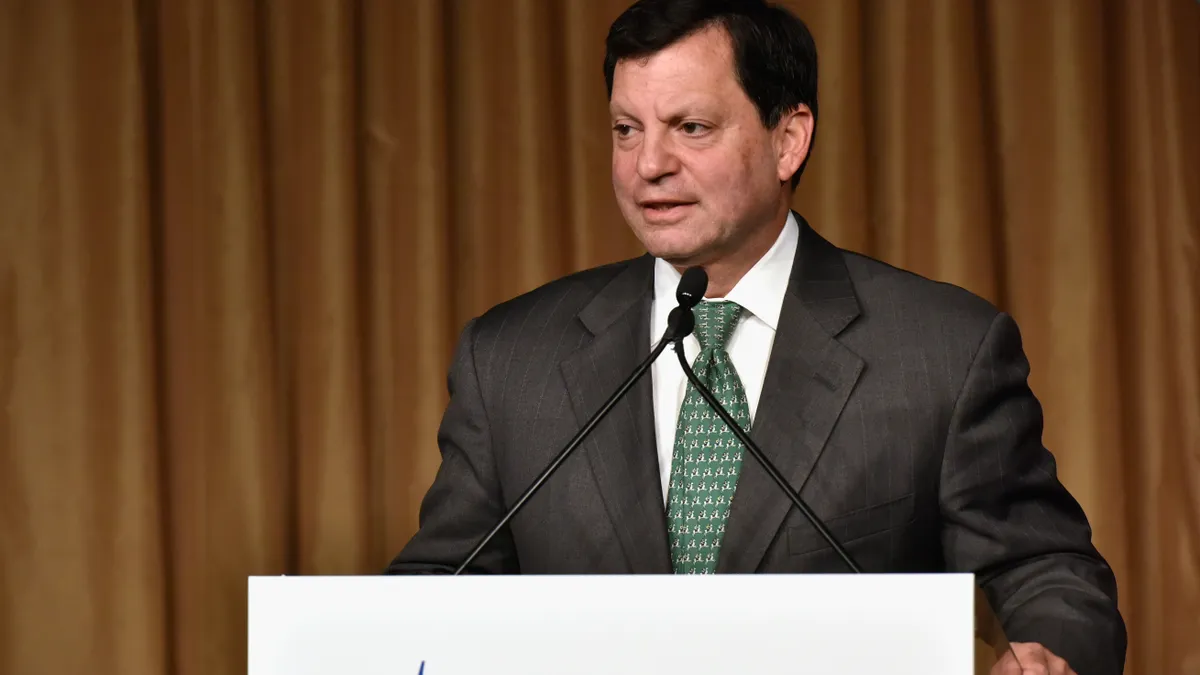Fiserv’s plans for its new Milwuakee headquarters took a step forward this week, as the city’s elected officials approved a $7 million tax-related grant designed to offset the company’s expenses.
Payments and fintech giant Fiserv announced in October its intention to move its global headquarters from Brookfield, Wisconsin, to a 144,200 square foot office space at a property known as HUB640 in downtown Milwaukee. The city’s grant to the company is funded from taxes collected from the district where the new headquarters will be located.
Milwaukee Common Council members on Tuesday unanimously approved creating a tax increment financing district where the proposed headquarters is to be located and authorized the incentive for Fiserv. That was at the recommendation of the council’s zoning, neighborhoods and development committee, which also unanimously approved the plan at its Dec. 6 meeting.
Fiserv has pledged to spend $37 million on the new space and employ at least 780 people at the Milwaukee headquarters, according to city documents. The move is contingent upon incentives from the city and the Wisconsin Economic Development Corporation (WEDC), the company said when it announced its plans.
The chairman of the zoning committee, Michael Murphy, said in an interview last week that he’s “personally knowledgeable” about recent employee cuts Fiserv has made, but said he has “to take some leap of faith” that Fiserv will “keep their commitment.”
“It’s always an issue that I’m concerned about,” said Murphy, the city’s District 10 alderman. “I’m very cognizant the industry is downsizing right now.”
Missy Hughes, CEO and secretary of the WEDC, declined to comment in November on state incentives Fiserv might receive, saying information remains confidential until an agreement is signed. That had not occurred as of Wednesday, a WEDC spokesperson said.
Fiserv currently has about 700 employees in the Milwaukee area, Fiserv Spokesperson Ann Cave said last month. In Brookfield specifically, which is about 11 miles outside of Milwaukee, Fiserv employed 659 workers as of 2021, according to a city report.
The company has made employee cuts this year, however. Fiserv, which says it has about 44,000 workers globally, has pared employees and sold off business units as it’s grappled with profit margin pressure. The company, led by CEO Frank Bisignano, also seeks tax incentives in New Jersey, where it’s invested $105.6 million on a new corporate campus and has pledged to create and retain about 3,000 jobs.
Construction on the new Milwaukee headquarters is slated to begin by June 2023, with completion targeted for December 2024, according to city documents. The company projects it will have 580 employees at the new location by the end of 2024, with that number rising to 780 by the end of 2027, per the documents.
Fiserv must employ 780 workers at that location to receive the entire $7 million incentive, and must maintain that headquarters space for at least 16 years, city documents note. Another stipulation as more companies push for a return to the office: Occupancy at the new headquarters needs to average at least 60% of total full-time employee hours for the year.
Fiserv must provide the city with compliance documentation annually, with the first report due by March 2024. If the company doesn’t employ the number of workers it has said it will each year, the city’s payments to Fiserv will be adjusted accordingly, city documents note.
The risk to the city is “fairly de minimis” if Fiserv doesn’t do what it says it will do, Murphy said. “We’re obviously interested in seeing it come to fruition.”
The company has said it’s having difficulty attracting and retaining younger employees in the tech industry, and executives felt having the office location in a more urban area would be beneficial, Murphy said.
As a person who knows Fiserv has let go of people who have had 25 years of service at the company, or 12 years of service and who are in their fifties, “it raises some issues in my own mind,” Murphy said.
Despite that, “this is a zoning matter for us,” he said. “I don’t automatically trust what corporations tell me anymore, that’s for sure. But I’m hopeful.”



















